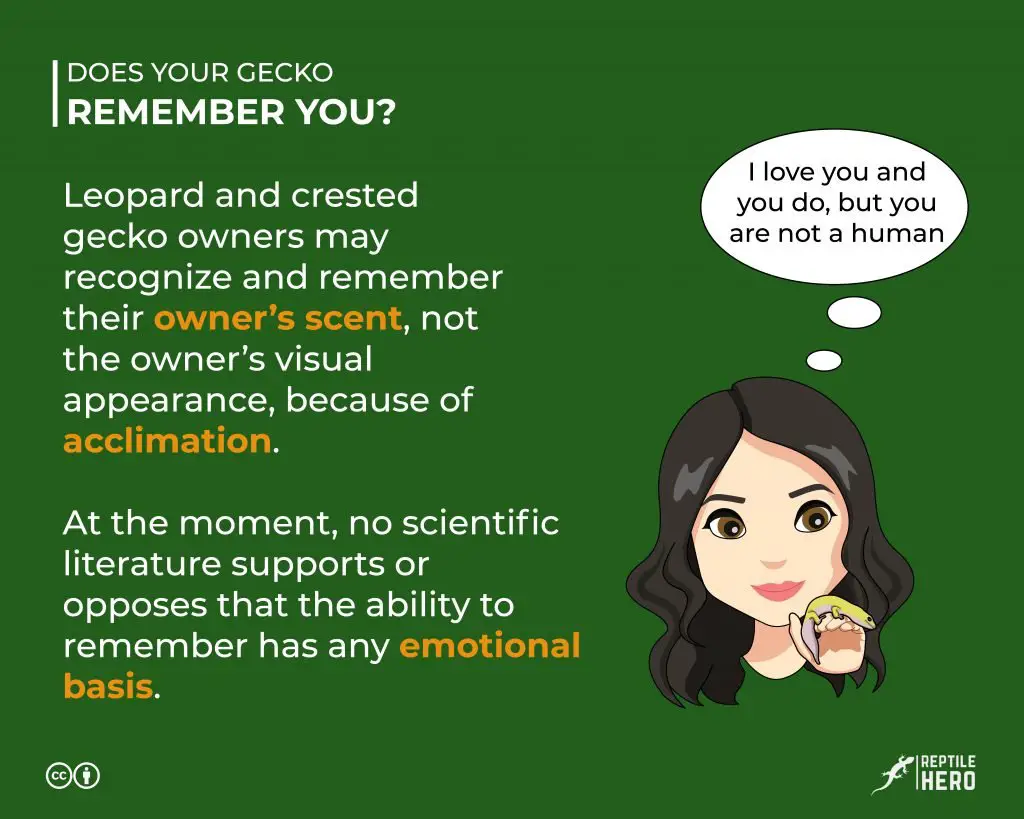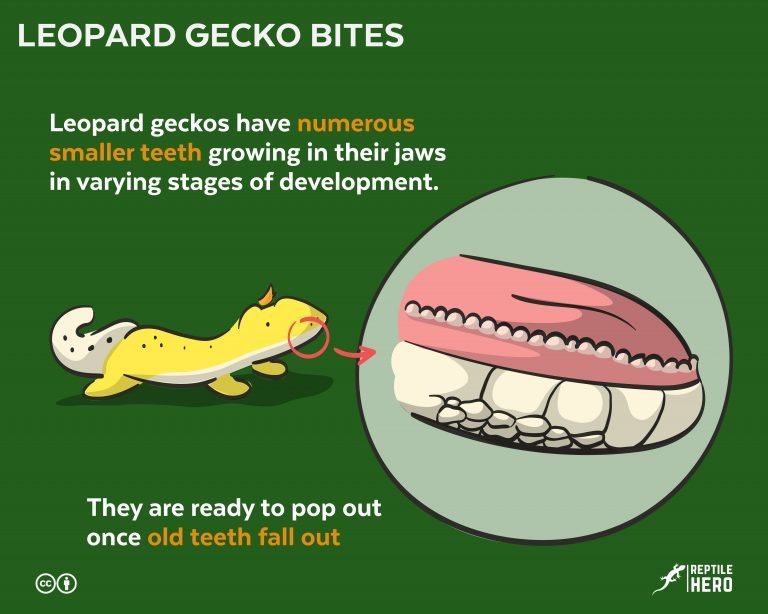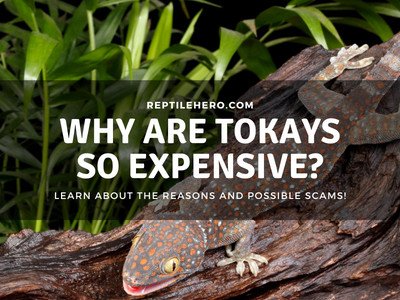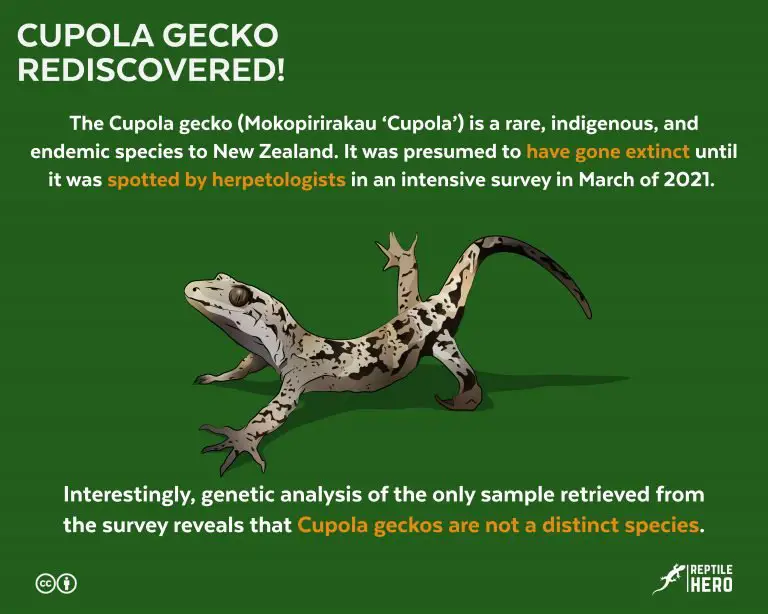Does Your Gecko Remember You? [2 Owners’ Stories and Science]
If you have owned a dog or a cat, it is somewhat easy to determine that it recognizes you as its owner because it is more affectionate toward you than to your friends or strangers. Then here comes your gecko. Does it recognize you and distinguish you from others?
Leopard and crested gecko owners may recognize and remember their owner’s scent, not the owner’s visual appearance, because of acclimation. At the moment, no scientific literature supports or opposes that the ability to remember has any emotional basis.
If you are dying to know whether or not that little reptile indeed remembers you, keep on reading as we discuss what owners and experts have to say about this.
Do Geckos Remember Their Owners? Two Unique Owners’ Experience
After witnessing several heartwarming actions from their geckos, leopard and crested gecko owners are firm to conclude that their pets do remember them during different circumstances.
Reptiles—including leopard and crested geckos—have been kept as household pets not long enough like cats and dogs. However, they have been with us as little companions for quite some time that their usual antics have been gathered by several owners.
One question that has constantly been bugging gecko owners like you and me over the years is, “Does my gecko remember me?” Indeed, there have been several anecdotal accounts regarding this matter. In this article, I have compiled two atypical behaviors that would make you say, “Yes! My gecko remembers me.”

Story 1: During Shedding
Annually, you and I would undoubtedly have different encounters with our geckos during their shedding. Some of us may have a carefree experience. On the other hand, some of us may have also bumped into difficulties.
A friend shared an incredible experience with me when a large piece of shed was stuck around her gecko’s eye region. Before she took action, she noticed how her gecko struggled—squinting and could not see, barely responding to any visual stimuli.
To her surprise, she was caught off guard while trying to help it remove the stuck shed when the gecko bit her hand. And every time she reached out to let it know that she was there, it would squeak in distress to ward her off. Definitely, it was a heartbreaking moment for her to witness it in such pain.
Not until she was finally able to hold it after countless hours of trying and waiting. Only then was her nervous gecko able to calm down as it rested on her hand, recognizing that it was its owner trying to lend a hand. After all, it allowed her to remove the stuck shed despite the uncomfortable (and perhaps painful) feeling.
If anyone were to face this challenging encounter, they would indeed acknowledge and appreciate the bond they have shared with their geckos, which they often neglect and take for granted on a typical day.
Story 2: After Rehoming
We have developed our own ways to spend quality time together with our geckos. Those are actions we have observed that our reptiles “enjoy” the most. Often, these are the most basic, such as giving food, refilling the water bowl, misting the enclosure, doing spot-on maintenance, and handling occasionally.
You may find this odd (and so did I), but a gecko owner has expressed her encounter with her previous gecko. Before she needed to let it go, she made sure to make the gecko the happiest it can be while it was with her. She took good care of it by giving proper food, clean water, and a comfortable environment.
When the time finally came, due to circumstances, she needed to rehome it. So, as a last resort, she sold it to a local reptile shop. While casually visiting the same shop where she has left the gecko after a couple of weeks, she checked the section where the leopard geckos were. Shockingly, she found a single tank with a lot of adult geckos in it. Apparently, gecko cohabitation is a prohibited practice as geckos should be strictly housed alone.
However, what caught her attention aside from that bad and poor husbandry was a particular gecko that looked like her previous one. It was hiding with its back facing her, allowing her to see the exact spot formation, markings, and back color. While all the other geckos inside the tank ignored her presence, that specific gecko turned around and checked out on her—as if it recognized who she was!
If an owner would cater to the gecko’s basic needs like food, water, and a safe enclosure, the gecko might manifest a certain degree of comfort around that person despite its limited ability to express emotions.

What Do Experts Say?
Owners often perceive their gecko’s unthreatened behavior as being able to recognize them apart from strangers. However, little to no evidence proves (or disproves) whether such behavior is related to recognition or not.
Apart from the two situations above, several anecdotes surround the world of reptile owners about their leopard and crested geckos showing recognition and affection. If you were to read them all, you would definitely say that most (if not all) are indeed compelling first-hand experiences. Then and again, these geckos have a literal “reptilian brain.”
The Reptilian Brain (Science)
When you hear a person say that someone has a “reptilian brain,” this often implies a negative meaning. Frequently, people use this expression to refer to others that respond to (and prioritize) their primitive needs like hunger, thirst, and habits.
If you look deeper, these are all basic actions (some are instinctual) that you would not need much thinking about. You can even do these without putting too much thought into it! That is why the “reptilian brain” concept, which is a part of the “Triune Brain” model by Paul D. MacLean, has gained wide acceptance because of its seemingly objective approach in explaining the mental capacity of reptiles.
However, 30 years after the theory’s publication in 1990, our scientists made progress and corrected/debunked several fine details in the model. Nevertheless, what is still valid up to this day is that nobody (even the experts) knows how intellectually capable reptiles are due to low volumes of reptile research.
So, what is the “reptilian brain” really all about?
Simply put, a reptile’s brain is perceived to focus mainly on survival and instincts. This implies that a reptile generally cares about hunting for food, eating, drinking, looking for safe spots, hiding from predators, and reproducing.
Many people look at this as a bit primitive since their brains are thought to be unequipped in handling things beyond love and affection. Nevertheless, this by no means should make you believe that your leopard or crested gecko is incapable of forming bonds with you, enjoying your presence, and remembering you after a long day’s work.
After all, no study has provided any evidence to prove or disprove this seemingly effortless topic. Nonetheless, do not allow your emotions to take over regarding this matter.
The Reptilian Brain (in Simple Words)
The majority of reptiles—including leopard and crested geckos—have not developed the part of the brain that governs complex emotions and intelligence. What the owners understand and observe as such is, in fact, acclimation and nothing more.
With what we know right now, experts want us to correctly distinguish (and not confuse) mammalian emotion from reptilian acclimation. To better imagine the differences between the two, here are two common scenarios:
- Your dog rushes to greet you at the front door when you come home because it is excited and happy to see you.
- Your gecko allows you to handle it because it has learned to associate you with positive situations, such as feeding.
Looking at it, the reasoning behind the two behaviors is not the same. In this case, your gecko has associated you with your scent by licking or voice by hearing. Since you do not harm it, it recognizes you for lack of threat. So, it has come to learn not to fear your particular smell because of Pavlovian training [1].
Do not get me wrong, though. Even if it is yet to be proven by science, your gecko still loves you with its reptilian brain—not just in the way that you and I expect it.
Do Geckos Have Human Feelings? Do Not Be Fooled
Anthropomorphizing—incorporating human emotions and motives into gecko’s behavior—is a common mistake by reptile owners because it gives wrong interpretations about the geckos and their actions.
Stating that your gecko was angry at you because it stopped eating or was resentful since it turned its back on you (among others) are some of the many ways you could be anthropomorphizing your reptile.
Because it has a less complex brain, your gecko would not feel hatred or affection when you leave them behind. Nor would it feel excited or joyful because it recognized that you were approaching the tank.
Consequently, we can be sure that geckos feel stressed (and threatened) way easily [2]. Primarily when housed in an awfully assembled enclosure with poor husbandry, your gecko may skip eating not because a stranger (and not you) is feeding it. It could be rejecting food as an initial indication of stress—caused by a new, different environment or perilous circumstances.

Takeaways
Many convincing gecko stories circulate the reptile world about emotional recognition. However, like most reptiles, leopard and crested geckos may recognize their owners by their scents and not primarily because of emotion or affection.
Gecko owners are encouraged by experts not to anthropomorphize their reptiles to refrain from misinterpreting their behavior and spreading unverified information.
Despite the fact that I love all my geckos, I need to keep this in mind, and I hope you do too!



![14 Reasons For Having A Gecko [+7 More That Your Child Will Love]](https://www.reptilehero.com/wp-content/uploads/2021/04/Reason-Kids-Gecko-As-a-Pet-768x614.jpg)



